Owning It: Our disabled childhoods in our own words
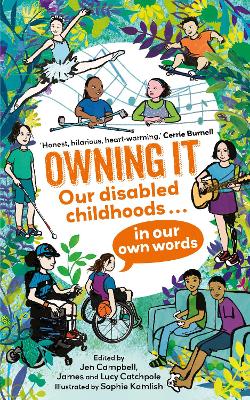
By Author / Illustrator
Edited by James Catchpole, Lucy Catchpole, Jen Campbell
Genre
Representation & Inclusion
Age range(s)
9+
Publisher
Faber Children's Books
ISBN
9780571380022
Format
Paperback / softback
Published
24-04-2025
Synopsis
Come on a journey through childhood with this anthology of 22 autobiographical stories from the very best writers in the disabled community. 'Honest, hopeful, hilarious and heartwarming.' Cerrie Burnell
From birthday parties, to navigating the sports field, to being given random free stuff, to juggling hospital visits alongside social lives . . . These 22 true stories capture the highs and lows, the tears and laughter, the friendships and fallouts of growing up with a disability. Whether you're disabled yourself, or know someone who is, or want to better understand the experience, this book is a window into the young lives of these disabled writers: their stories, in their own words.
Find out more in our indepth Q&A with James Catchpole & Jen Campbell
Edited by James Catchpole, Lucy Catchpole and Jen Campbell. With contributions from Ali Abbas, Polly Atkin, Imani Barbarin, Jen Campbell, James Catchpole, Christa Couture, Carly Findlay, M. Leona Godin, Eugene Grant, Jan Grue, Matilda Feyisayo Ibini, Ilya Kaminsky, Sora J. Kasuga, Jessica Kellgren-Fozard, Elle McNicoll, Daniel Sluman, Nina Tame, Rebekah Taussig, Steven Verdile, Alex Wegman, Ashley Harris Whaley and Kendra Winchester. Illustrated by Sophie Kamlish.
Reviews
Jenny
This fantastic non-fiction collection features 22 fascinating, inspirational and incredibly honest and open true stories from a huge variety of disabled writers. Sharing their experiences of being young and growing up, of the challenges, achievements, stereotypes and expectations that they have dealt with - this is a refreshingly direct and fascinating read.
From the eye-catching cover, featuring wonderfully diverse illustrations inspired by some of the authors own disabilities (and illustrated by Paralympic athlete and illustrator, Sophie Kamlish), to the incredible cast of individual author stories from around the world, the collection is a huge celebration of talents, skills and temerity.
In Owning It, 22 disabled authors have woven their individual magic to take the reader into their own early experiences. Editors Jen Campbell and James and Lucy Catchpole have collated these into a proud, powerful and positive example of diversity. Jen Campbell is an author I remember coming to the inclusive Primary School I worked in many years ago and, for many of our pupils, the representations and connections made on that visit were so important and enjoyed.
This book champions equality and diversity and how essential it is for readers to recognise themselves in what they read and who has written it. Thought-provoking, informative, captivating, warm and funny and packed full of dignified, powerful voices, Owning It paves the way forward for equity and a strong, inspiring community.
Elle McNicholl, in the final story Pomegranate, captures the essence of every author in the collection: 'I could take the label the doctors had given me, and the names the playground had thrown at me, and I could paint gold into the cracks.'
368 pages / Reviewed by Jennifer Caddick, teacher
Suggested Reading Age 9+
Louisa
This well-written and refreshing anthology of true stories is a journey through classic childhood experiences, reported by writers from a range of countries and with a variety of different disabilities. We see firsthand their struggle against the pressure of societal norms: as one of the writers puts it, dealing with 'inaccessibility, discrimination and people constantly underestimating me'. We see the embarrassment of being singled out and patronised by people trying to make themselves feel better: in one example, a happy visit to an entertainment park is ruined when the writer is presented with a ludicrously large teddy bear that is appropriate neither to her age nor the situation.
However, if this makes Owning It sound like a series of mini pity memoirs, it really isn't. The lasting impression is one of shared humanity. The writers' disabilities and the way they think about them may differ but none of them want us to feel sorry for them. One of them even writes, 'Why do you feel sorry for me? I don't feel sorry for myself'. Here is a group portrait of people growing up, who are funny and clever, resilient and resourceful, angry and rueful, but who do not see themselves as particularly exceptional. Disability is presented as part of everyday life.
This book will make an empowering read for children who have disabilities, encouraging them to own those disabilities without embarrassment and to be proud to be themselves. It's also a great resource for those who aren't disabled, whether parents, teachers or children. It illuminates a world we often ignore.
You can dip in and out or read it in any order; read the whole book and it will inspire the full range of emotions that you would get from any coming-of-age memoir. Don't be put off by the slightly worthy cover and subtitle. It's way more entertaining than they would suggest.
368 pages / Reviewed by Louisa Farrow, teacher
Suggested Reading Age 9+
Other titles
-
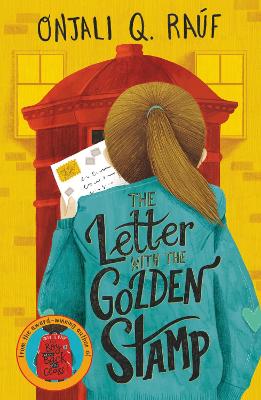 The Letter with the Golden Stamp
9+ Representation & Inclusion 20240411
The Letter with the Golden Stamp
9+ Representation & Inclusion 20240411
-
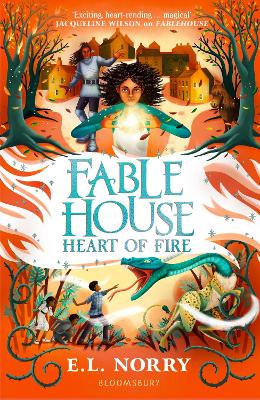 Fablehouse: Heart of Fire
9+ Representation & Inclusion 20240424
Fablehouse: Heart of Fire
9+ Representation & Inclusion 20240424
-
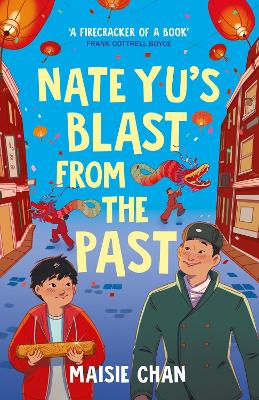 Nate Yu's Blast from the Past: boy meets ghost in a tale of unlikely friendship
9+ Representation & Inclusion 20250612
Nate Yu's Blast from the Past: boy meets ghost in a tale of unlikely friendship
9+ Representation & Inclusion 20250612
-
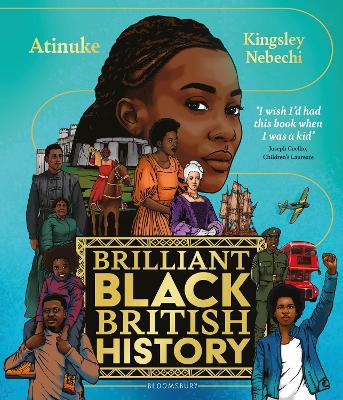 Brilliant Black British History (paperback)
9+ Representation & Inclusion 20240829
Brilliant Black British History (paperback)
9+ Representation & Inclusion 20240829
